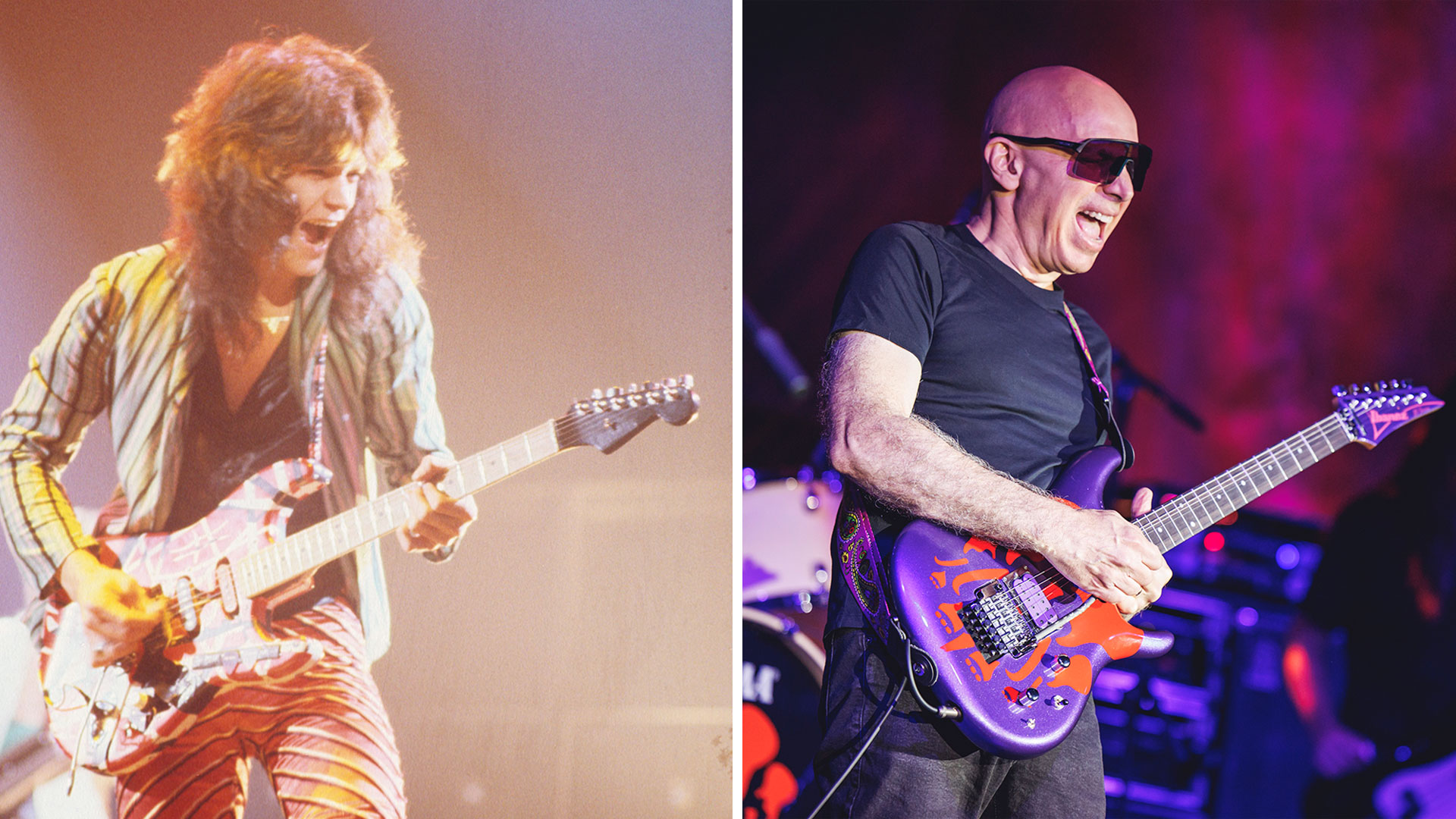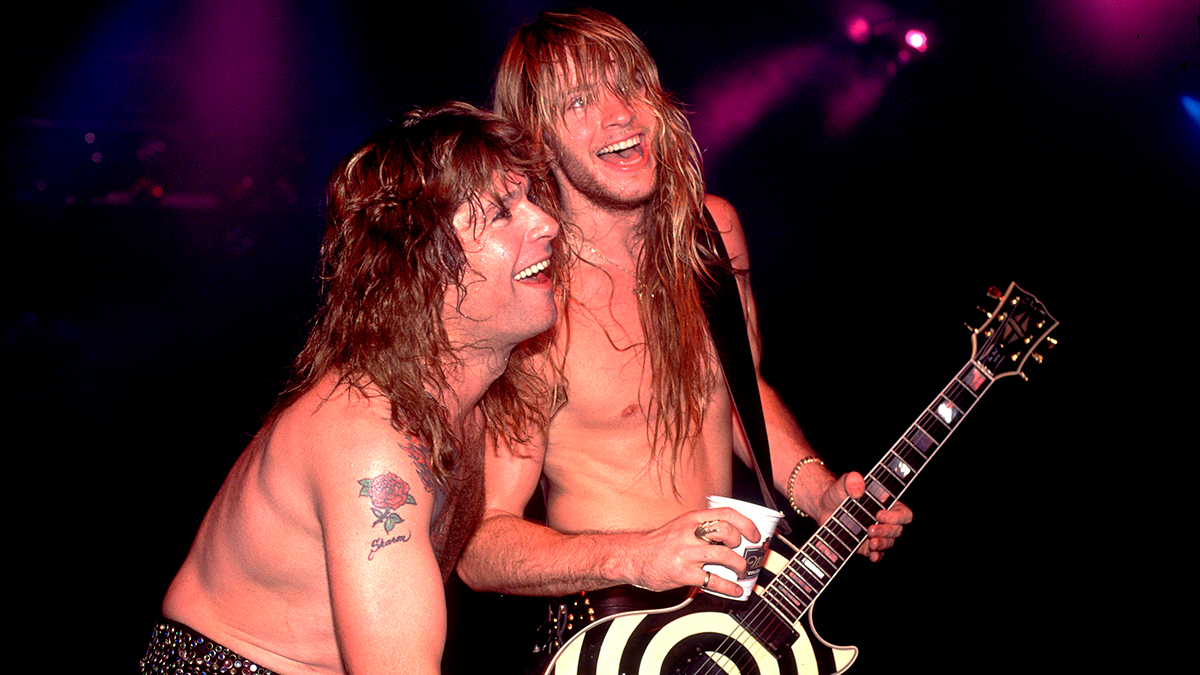“He just could not be contained. That was what was so beautiful... If you’ve been tasked with the job of imitating him, it’s like, ‘Well, which moment?’” Joe Satriani says the biggest challenge in covering Eddie Van Halen is pinning him down
The virtuoso has been sharing his thoughts on how to tackle covering one of the world's greatest guitarists – and how to find the sweet spot in EVH's rigs

Joe Satriani might have the busiest calendar in rock music right now, with a seemingly back-to-back run of shows and tours across the next year. The most headline grabbing of those events – his Best of All Worlds shows with former Van Halen men Sammy Hagar and Michael Anthony – is also proving the most challenging, and it’s not even kicking off until next summer.
In a new interview with Rolling Stone, Satriani discusses his thinking around the gig – which will take in material from Montrose, Chickenfoot and, of course, Van Halen.
In doing so, the guitarist explains that the hardest aspect is trying to pin down a player that constantly evolved on multiple fronts – from his note choices, to his gear.
For a start, as he related in his recent Guitar World interview, Satch notes the plethora of amp equipment involved in Van Halen’s tonal journey – from classic Marshall tube amps, to more extensively hot-rodded units and into the Peavey 5150 and 5153 units.
“For a guitar player, this is a remarkable set of changes that affords you different ways of pulling things off,” explains Satch.
“And one doesn’t work for the other. Using one of the brand new amps to represent something from the first album, it’s very difficult. And it’s difficult playing later songs with the earlier setup.”
Currently Satch reckons he’s hit a good balance by focusing on 1986’s Live Without a Net rig – in which EVH favored Marshalls albeit setup in a much more complex manner, with power soaks and effects processing.
All the latest guitar news, interviews, lessons, reviews, deals and more, direct to your inbox!
“It was a complicated setup, but at the heart of it was his incredible touch,” explains the virtuoso.
“He just had a beautiful touch on the guitar. He played with such intensity. I don’t want to generalize and say that he made everything sound good, but he did! You notice that when you have one of his guitars and his setup or his model, he just can’t be replaced.”
Elsewhere, in the Rolling Stone piece, Satriani explains that he faces a similar challenges in understanding the shifting landscape of EVH parts – which were even more variable than his gear.
He just kept reinventing the parts and the chords and how he would embellish it and how he would solo over it
Again, aside from good old-fashioned practice, Satch reckons nailing the tone is key to the challenge.
“Primarily, it’ll be for me,” says Satriani. “It’ll help me get in the mood to play the parts the way he did. And he played them one way on the album, and then every night he played them live.
“As far as I can tell, he changed them every night. He just could not be contained. That was what was so beautiful about his enthusiasm about playing guitar and being a musician. He just kept reinventing the parts and the chords and how he would embellish it and how he would solo over it. If you’ve been tasked with the job of imitating him, it’s like, “Well, which moment?””
For more from the guitar icon, check out recent interview in which Joe Satriani discusses tackling Van Halen, reforming G3 and recording with Steve Vai in what looks set to be his biggest year yet.

Matt is Deputy Editor for GuitarWorld.com. Before that he spent 10 years as a freelance music journalist, interviewing artists for the likes of Total Guitar, Guitarist, Guitar World, MusicRadar, NME.com, DJ Mag and Electronic Sound. In 2020, he launched CreativeMoney.co.uk, which aims to share the ideas that make creative lifestyles more sustainable. He plays guitar, but should not be allowed near your delay pedals.
